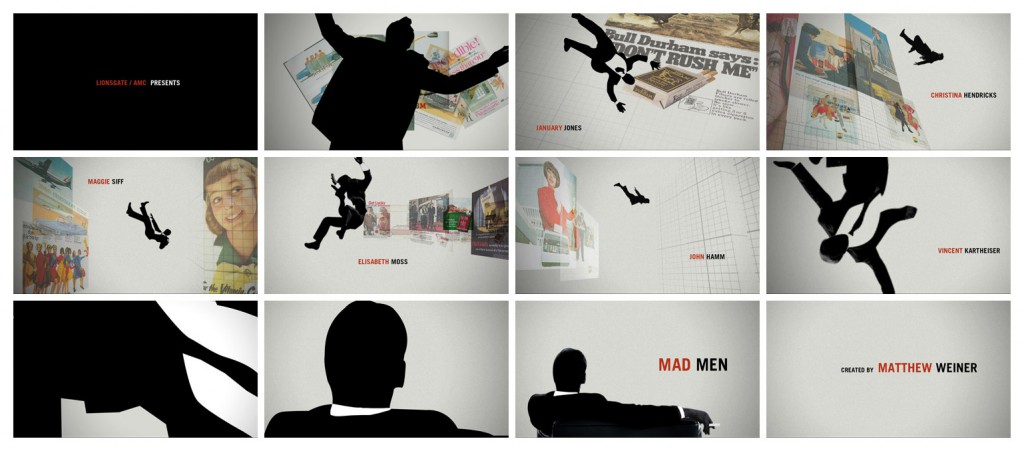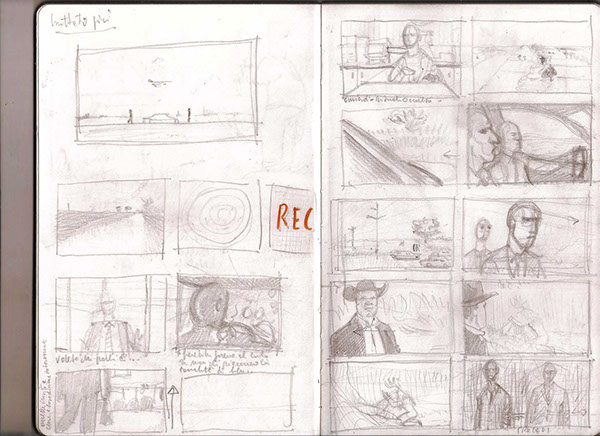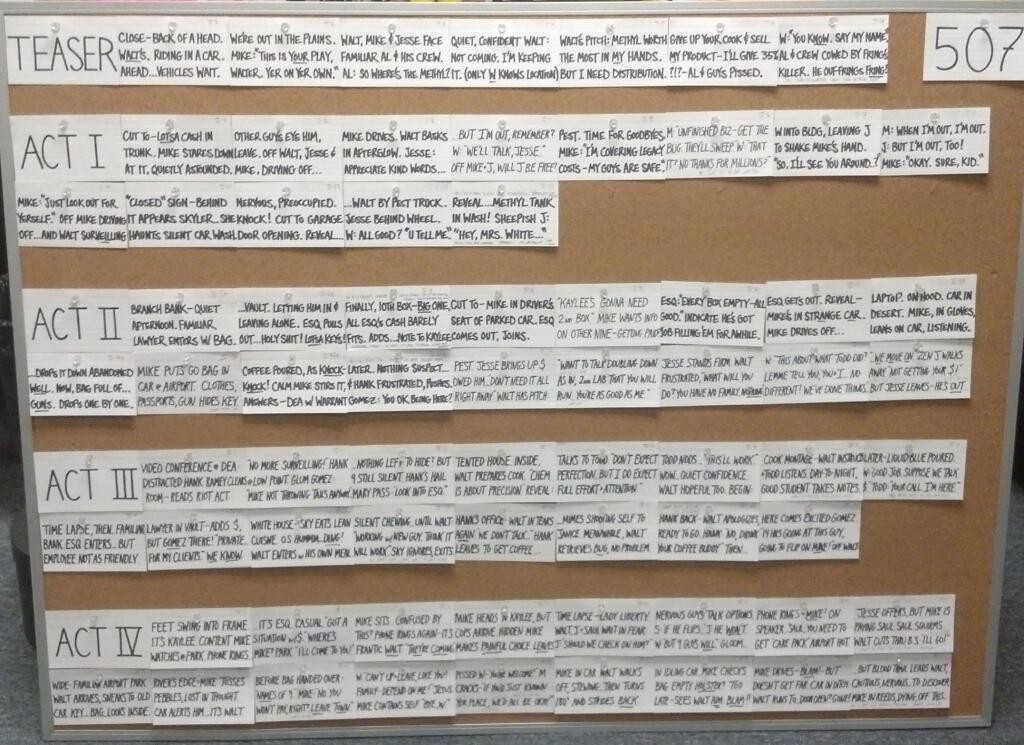
A very interesting article on Aeon this week about “The Dangerous Idea that Your Life Is a Story.” Written by Galen Strawson, the article questions the assumption that humans do (or even should) frame their lives in the trajectory of a plot line. Strawson surveys the very popular history of this idea in psychology, called Narrativism, and then lines up an Anti-Narrative argument against it. For Strawson, the allure of assigning a story arc to our lives simply does not jive with the reality of our lives, and encouraging people to do so is drastically more harmful than helpful.
I had always thought that the whole fitting your life in a narrative was a supremely Christian/religious thing to do. Apparently not. The essay discusses the experience of “self-constituting self-authorship,” the sensation we get in times of our lives when we’ve “made it.” Some people don’t get these experiences at all. If we do, they tend to be the movie-montage moments of life, when we throw our graduation caps up; when we stand at the threshold of our new home, deed in hand. These moments are benchmarks, they represent the progressive steps of our life’s great climactic ascent. They make up the rising action of our big story.

Strawson argues that, while some of us may want to tell ‘our story’ this way, it doesn’t make it true. We may experience “self-constituting self-authorship,” but self-authorship–writing your life story–is a hoax. The article references a Narrativist named Marya Schechtman, who compares the life narrative of individuals as an implicit and ongoing curriculum vitae. Yikes!
Like Schechtman, I am (to take John Locke’s definition of a person) a creature who can ‘consider itself as itself, the same thinking thing, in different times and places’. Like Schechtman, I know what it’s like when ‘anticipated trouble already tempers present joy’. In spite of my poor memory, I have a perfectly respectable degree of knowledge of many of the events of my life. I don’t live ecstatically ‘in the moment’ in any enlightened or pathological manner.
But I do, like the American novelist John Updike and many others, ‘have the persistent sensation, in my life…, that I am just beginning’. The Portuguese writer Fernando Pessoa’s ‘heteronym’ Alberto Caeiro (one of 75 alter egos under which he wrote) is a strange man, but he captures an experience common to many when he says that: ‘Each moment I feel as if I’ve just been born/Into an endlessly new world.’ Some will immediately understand this. Others will be puzzled, and perhaps skeptical. The general lesson is of human difference.

In other words, Strawson argues that we are many people. Like Jekyll and Hyde, or Legion, we do not have to be pathological to be the embodiment of several selves.
Of course, it doesn’t keep us from wanting to be just one unified character, living the heroic lead in our big story. We have always wanted to be lead! Within Christianity, the narrative is a little more complex–we believers are the “inheritors” of and “participants” in God’s redemptive story of bringing God’s Kingdom here.
It doesn’t change the fact that, try as we might to parse the words, this divine narrative just as easily becomes all about numero uno. We begin to confuse God’s narrative of redemption with our spasmodic part in it, partially (or totally) because it allows us the illusion of deific control. Much as we champion God’s condescension to humanity in Christ the humble, we still prefer the condescension of me to you, person to person, the superior feeling of being in on God’s grand plan.

It goes without saying that Christianity believes in the Kingdom Come, and that God’s redemptive story is real. What Strawson argues, though, is true to Christians and Gentiles alike–that there is a cruel optimism in living as though on the inside track of this narrative. So many narratives (lives) are cut way short of their intended trajectory. What can be said of those lost stories? What if I lack a cohesive story for my life–if I’ve failed to pull together all my plot points, what hope is there for me? Back to Strawson:
If this is true, we must worry not only about the non-Narratives – unless they are happy to lack personal identity – but also about the people described by the developmental psychologist Erik Erikson in Identity: Youth and Crisis (1968):
“various selves… make up our composite Self. There are constant and often shocklike transitions between these selves… It takes, indeed, a healthy personality for the ‘I’ to be able to speak out of all these conditions in such a way that at any moment it can testify to a reasonably coherent Self.”

Certainly the Law of the Coherent Self has only heightened in the social media age. When you can conveniently be anyone to everyone–by the books you read, the pictures you take, the updates you give–we all have the tools to curate a self-styled unit. Having this capability at our fingertips doesn’t make us control freaks, but it certainly compounds our predilection to “tell our story.”
Which gets at another point, that not only are our narratives contingent upon life being simple, but that they are also shot through with our own perverse self-justifications. In building a narrative arc of our messy lives, we tend to build up the parts of our selves we want so badly to be there, and leave out the nasty bits. For original sinners, there is no such thing as ‘transparency.’
This reminded me of a favorite insight in Luther’s theology, that God works sub contrario, under his opposite. This creates all the beautiful paradoxes we love to talk about–that strength comes in weakness, that wisdom comes in children, that deep healing can spring forth from severe suffering. For Luther, God always tells the story, not us, and God frequently does so by deconstructing our story–a glory story, to be sure–and building from there. In other words, God shows himself in showing you what you are not and can never be. In doing so, the mercurial story of our own inner-lives is stripped away. And all that is left, the story of Calvary, of death and resurrection, is all the story that matters.
[youtube=https://www.youtube.com/watch?v=KLeDe5yRi8s&w=600]

COMMENTS
6 responses to “Deconstructing the Story of Your Life”
Leave a Reply













Really, really interesting.
Interesting indeed. I love biographies. My wife and I are reading Built from Scratch by Arthur Blank, owner of the Atlanta Falcons and partner in Home Depot. Fascinating reading.
Everybody has a story. The only one that stands firm is the Calvary story.
Interesting thoughts. Beginning with blatant self-promotion, I look a little at multiple selves, narrative theology, divine encounter and solitude in this article you might be interested in (and the full ThM thesis is on academia.edu). http://www.ea.org.au/Crucible/Issues/Personhood-Community-and-Solitude
Another thought is that some languages do not describe time with linear metaphors – some mark the distant past and distant future the same way, creating more of a circular image with the speaker in the middle. We forget sometimes that our metaphors for time are just that and I wonder what that understanding would do to our psychology/theology.
In evangelical circles, we say that we all have a God-story or testimony. In most cases, these take the form of “I use to be this way (bad, fear death, no joy or peace), God came into my life, and now I’m this way (good, no longer fear death, great joy and peace). The statement that I find interesting is that God shows us what we are not and can never be…and all that is left is the story of Calvary. Thank you.
Ethan, I read the same article awhile ago and had a different take. I found Strawson confused, deeply ironic (unintentionally), and virtually self-refuting; i.e., he used self-narrative to deny self-narrative. I take the idea that we are each trying to tell ourselves a narrative about ourselves as self-evident and axiomatic. Of course, it is also self-evident that we usually get it wrong, sometimes horribly so, as you point out so well. The only true story about ourselves is the one that God tells us, and, as you also point out so well, we are each only part of the story of redemption that God, and God alone, is the author of. Having said that, I think that part of the true story about myself is at least discoverable–in a fitful, partial, halting sort of way. I think that is much of what we call “sanctification” is all about. Anyway, that’s my story and I’m sticking to it.
[…] of the problem is hindsight bias, of course — hard work and merit constitute a tighter, more linear and straightforward story, and therefore one that’s easier to process cognitively. The other problem is that people tend to […]